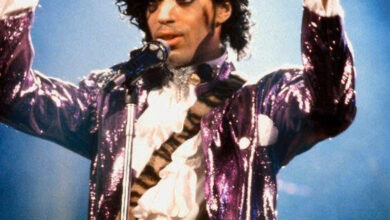The Power of Reinvention: How Prince’s Life Changes Shaped His Musical Evolution
OPINION: This article may contain commentary which reflects the author's opinion.
Prince, an enigmatic figure who defied musical conventions, was not just an artist; he was a force of nature. Throughout his career, he reinvented himself countless times, crafting a legacy that went far beyond music. His ability to transform, both personally and professionally, became a hallmark of his genius. Every chapter of his life seemed to inspire a new sonic landscape, revealing how deeply personal experiences shaped his musical evolution.
The Early Years: Defining His Sound
Born Prince Rogers Nelson in 1958, the young artist was immersed in music from an early age. His father, a jazz musician, and his mother, a singer, instilled in him the rhythms that would later define his sound. As a teen, Prince was already experimenting with various genres, refusing to be boxed into any particular style. His 1978 debut album, For You, introduced the world to his multi-instrumental talents, but it was his follow-up, Prince, that cemented his place as a rising star. His early years were defined by exploration, where funk, soul, and rock coexisted seamlessly.
Breaking Free: The 1980s Revolution
The 1980s were pivotal for Prince, both in his music and personal life. This era marked a period of bold creativity and fierce independence. His breakout album, 1999 (1982), set the stage for his dominance, but it was the release of Purple Rain (1984) that solidified him as a musical icon. At the height of his fame, Prince faced immense pressure from record labels and the industry at large. This pressure, however, became a catalyst for change.
His rebellion against the limitations placed on him by record executives led to his name change in 1993 to an unpronounceable symbol, a move that stunned the world. The media labeled him “The Artist Formerly Known as Prince,” a label Prince wore with pride. This act of defiance was a direct response to what he saw as the industry’s control over his art and identity. It symbolized his need for artistic freedom and began a new phase of reinvention—one that would see Prince delve deeper into experimental sounds and challenge the norms of pop music.
Personal Loss and Spiritual Rebirth
The 1990s also brought profound personal changes for Prince. In 1996, the artist experienced devastating losses with the tragic death of his son, Amiir. The heartbreak left him reeling, and this emotional toll inevitably seeped into his music. His 1996 album Emancipation reflected themes of freedom, love, and redemption, showcasing a more introspective side of Prince. While earlier albums exuded sexual energy and flamboyance, Emancipation was spiritual, influenced by his conversion to the Jehovah’s Witness faith. This new sense of spirituality would shape his future work, grounding him amidst the chaos of fame.
Prince’s deepening spiritual beliefs and newfound introspection also influenced his rejection of certain aspects of his past persona. He began to distance himself from the sexually provocative image that had previously defined him. In place of this, Prince started to explore themes of faith, love, and social justice with a newfound earnestness. His 2001 album The Rainbow Children was a testament to his evolving worldview, blending elements of jazz, funk, and gospel, creating a sound that was as spiritually rich as it was musically innovative.
The Legacy of Reinvention
Prince’s ability to constantly reinvent himself was driven by a fearless rejection of the status quo. Unlike many artists, who often cling to a signature style, Prince thrived on change. Whether it was the psychedelic funk of Around the World in a Day (1985), the politically charged Sign o’ the Times (1987), or the futuristic R&B sound of Musicology (2004), each era of Prince’s career reflected his inner evolution.
By the time of his untimely death in 2016, Prince had become a symbol of what it means to live unapologetically. His musical catalog spans multiple genres, but more than that, it serves as a timeline of his personal transformations. Each reinvention marked a shift in his identity, a rebirth that propelled him forward creatively.
The Enduring Influence
Prince’s willingness to embrace change and face life’s challenges head-on continues to inspire artists across the world. His ability to turn personal struggles into fuel for musical experimentation is a lesson in resilience and creative courage. As he once said, “The key to longevity is to learn every aspect of music that you can.”
In the end, Prince’s musical evolution was more than just about sound; it was about life. His personal experiences—his battles with the music industry, his spiritual awakening, his moments of joy and pain—all found their way into his art. Through constant reinvention, Prince showed that the power of change lies not in leaving the past behind, but in allowing it to shape who you become.
Conclusion: A Legacy of Reinvention
Prince’s journey was one of continuous growth, a testament to his genius and relentless pursuit of artistic freedom. He challenged societal norms, shattered musical boundaries, and redefined what it meant to be an artist. From funk to rock, from rebellion to spiritual enlightenment, Prince’s life changes were the driving force behind his musical evolution. His legacy is a reminder that true greatness comes from embracing reinvention, both in art and in life.



